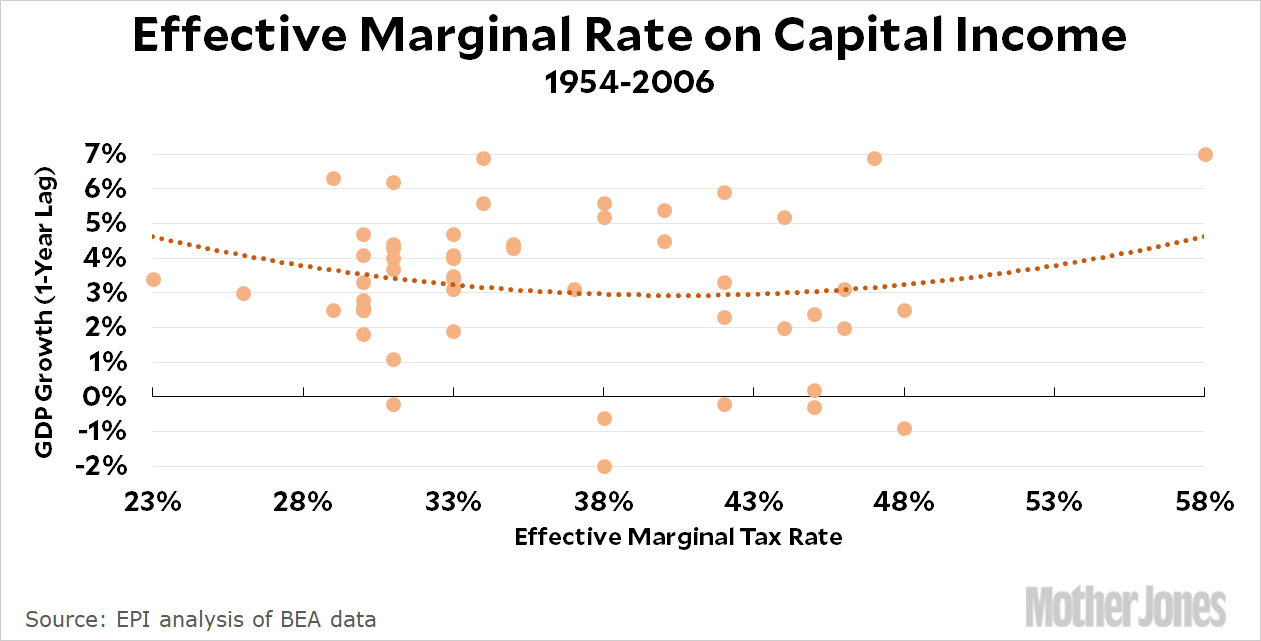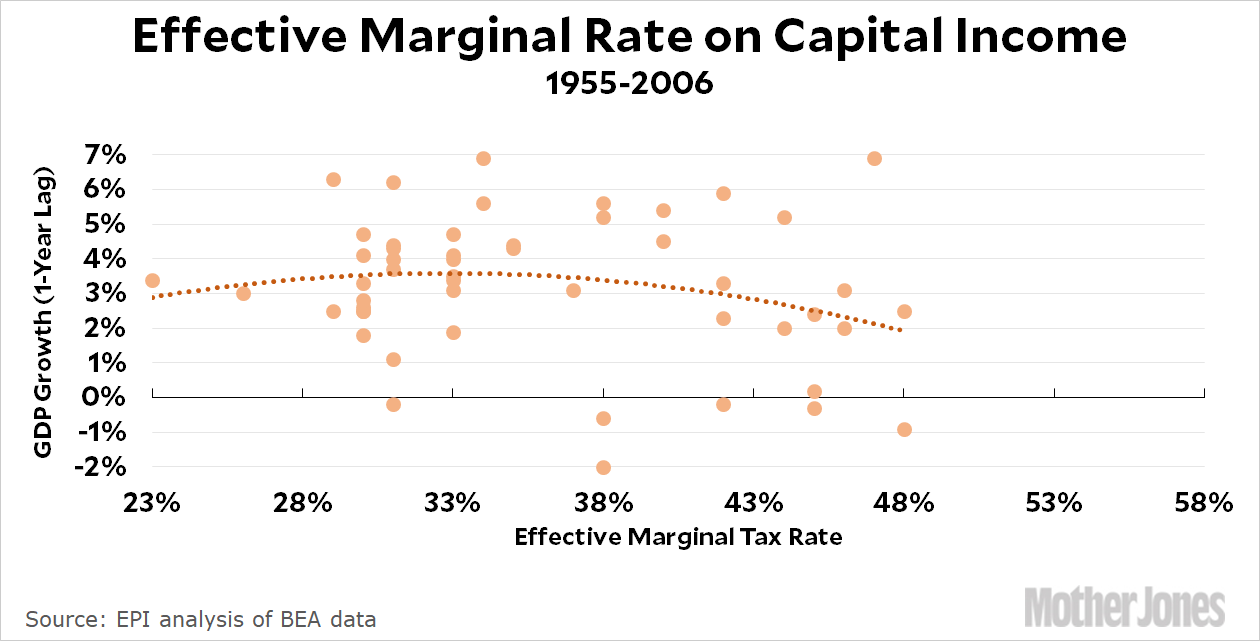Over at The Corner, Veronique de Rugy complains that Republicans are making a hash of tax reform. No argument there. In particular, she’s unhappy about increasing the child tax credit even though she admits it’s politically popular:
But is it more important than simplifying the tax code and getting rid of special handouts to preferred groups? And is it more important than cutting the corporate tax rate as much as we can? Everyone agrees the growth dividend increases as the rate gets lower. In the long run, that will boost take-home pay for everyone by more than an expanded child credit. And if cuts to middle-class taxes are necessary politically, which I understand, we should do it by lowering tax rates rather than by granting tax credits.
Does everyone agree that the economy grows as the corporate tax rate gets lower? I’m not so sure about that. Courtesy of EPI, here are two charts relating economic growth to the effective tax rate on capital income. First, here’s the basic chart:

Within the bounds of 23-43 percent, it looks like conservatives are right: higher economic growth is associated with lower tax rates. But what happens if we remove that one weird outlier on the top right from 1954? Everything flips:

Now it looks as though the sweet spot for capital taxes is 35 percent. Growth is lower both below and above that point.
So what does this mean? Pretty much nothing. Basically, a simple look at tax rates and economic growth doesn’t tell you much. If removing a single point from 60 years ago can not just change the trendline, but turn it upside-down, then the relationship is so fragile that it tells you almost nothing.
What you could conclude is that there’s probably not much relationship at all between corporate taxes and economic growth. In the range from 20-40 percent it’s mostly just noise. It’s quite possible that specific changes could make a difference, and it’s almost certain that getting rid of special interest subsidies and loopholes would help a bit, but it’s hard to say much more than that. The likelihood that the Republican plan to cut corporate tax rates would supercharge the economy is close to zero. And the likelihood that it would help workers is about the same.
True tax reform on the corporate side is a great idea. But that’s not what Republicans are up to. They just want to cut taxes, especially on rich folks who declare a lot of pass-through income. That will be great for lawyers and hedge fund managers, but it won’t do anything for the middle class.













